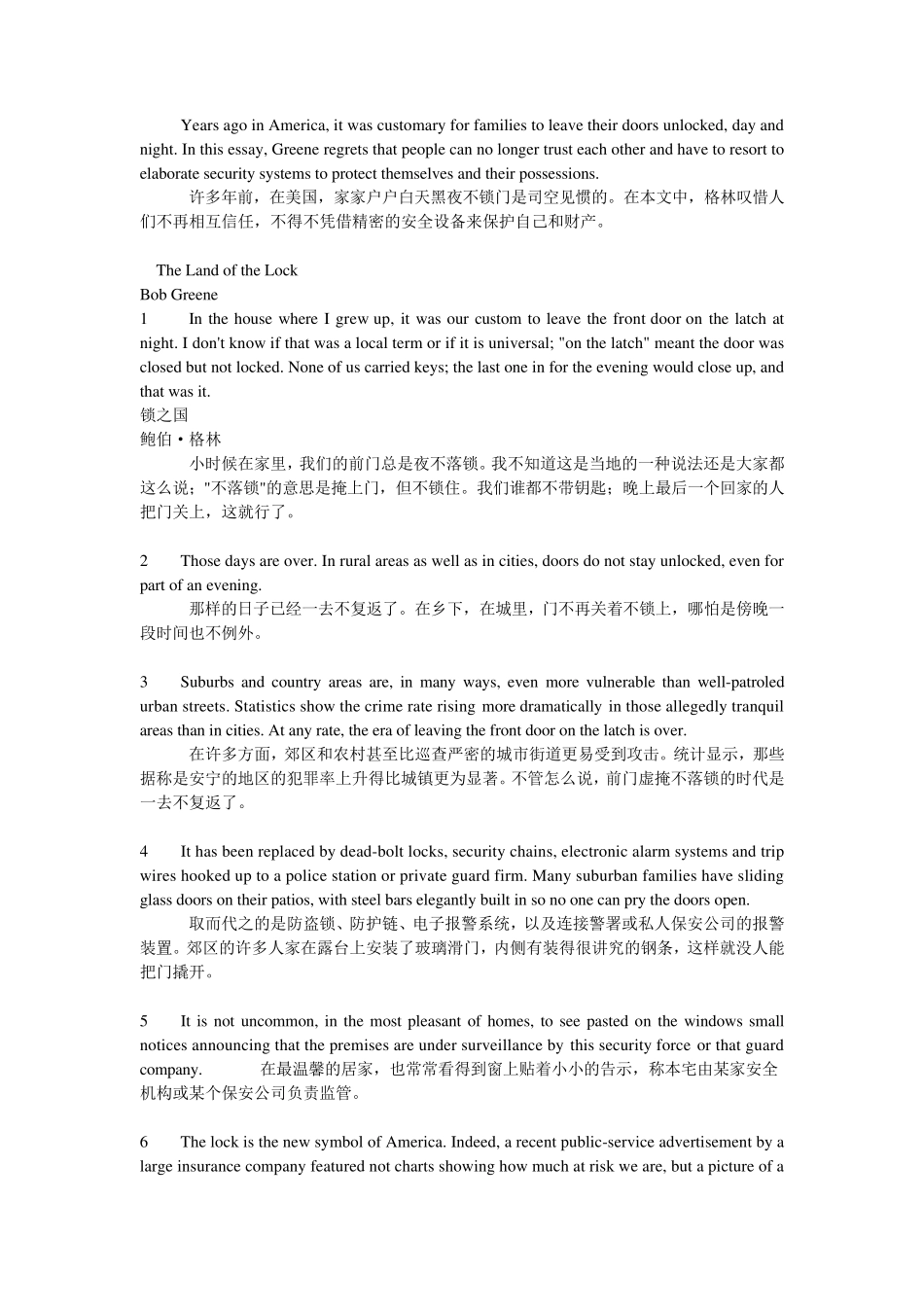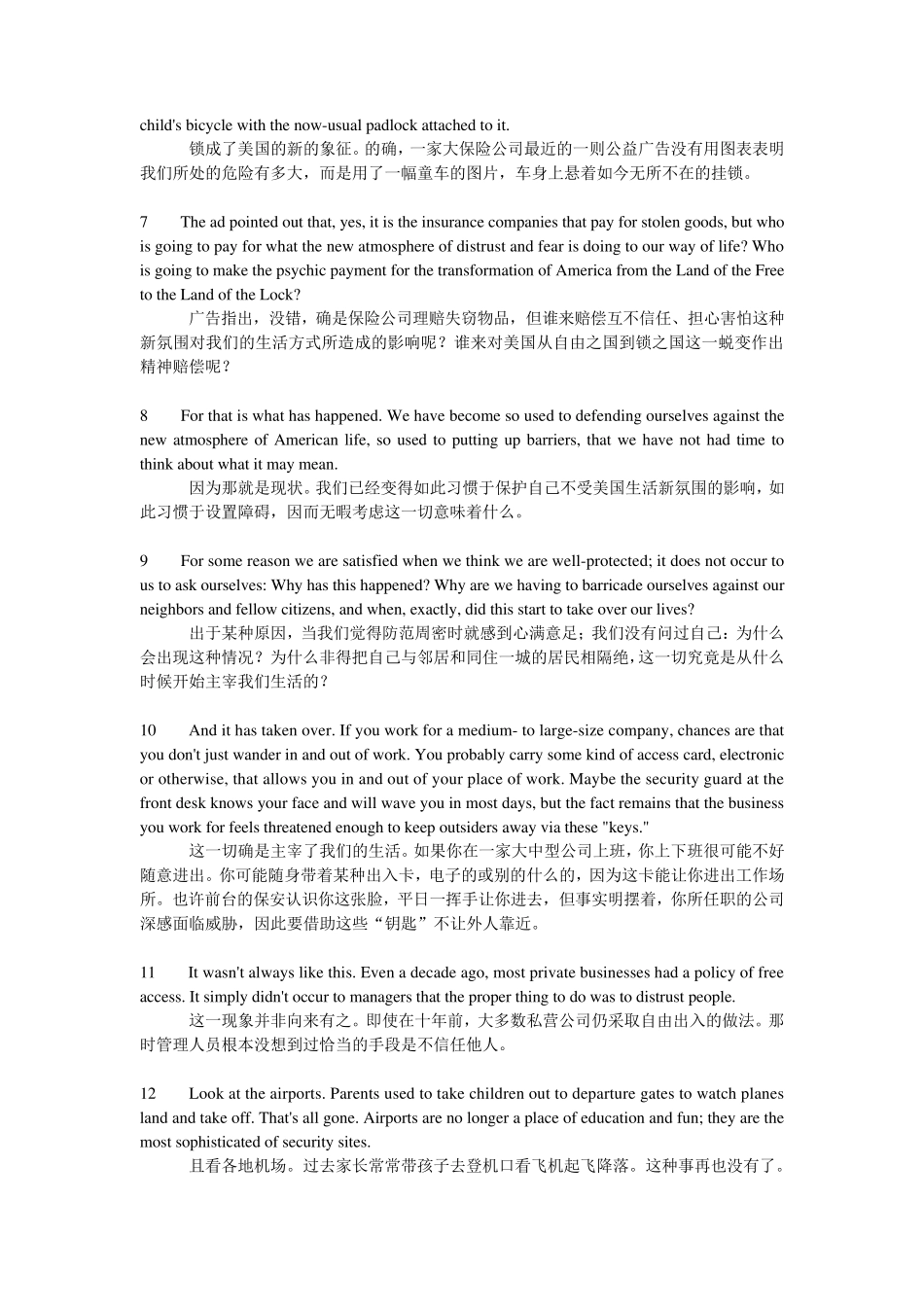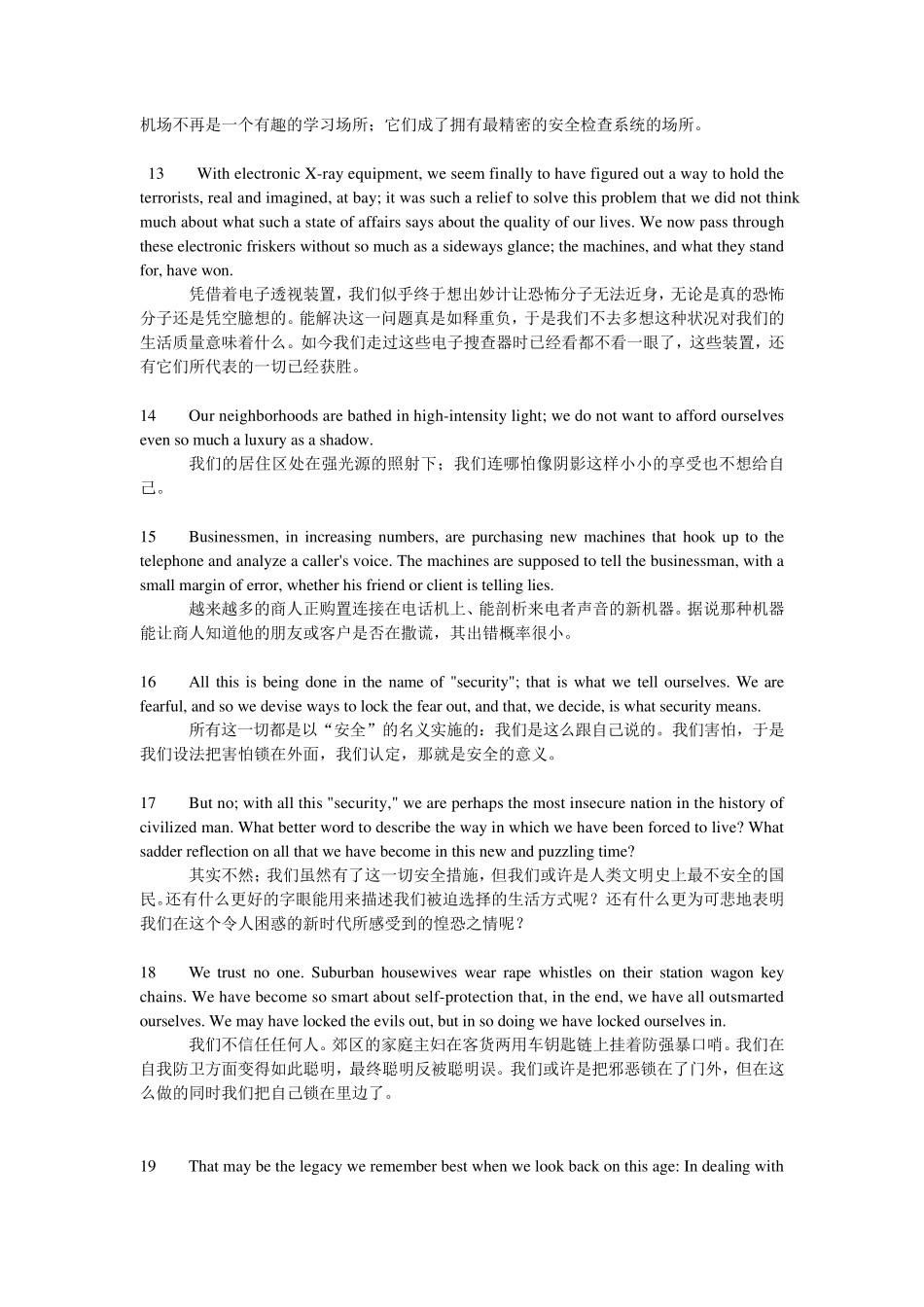Years ago in America, it was customary for families to leave their doors unlocked, day and night. In this essay, Greene regrets that people can no longer trust each other and have to resort to elaborate security systems to protect themselves and their possessions. 许多年前,在美国,家家户户白天黑夜不锁门是司空见惯的。在本文中,格林叹惜人们不再相互信任,不得不凭借精密的安全设备来保护自己和财产。 The Land of the Lock Bob Greene 1 In the house where I grew up, it was our custom to leave the front door on the latch at night. I don't know if that was a local term or if it is universal; "on the latch" meant the door was closed but not locked. None of us carried keys; the last one in for the evening would close up, and that was it. 锁之国 鲍伯·格林 小时候在家里,我们的前门总是夜不落锁。我不知道这是当地的一种说法还是大家都这么说;"不落锁"的意思是掩上门,但不锁住。我们谁都不带钥匙;晚上最后一个回家的人把门关上,这就行了。 2 Those days are over. In rural areas as well as in cities, doors do not stay unlocked, even for part of an evening. 那样的日子已经一去不复返了。在乡下,在城里,门不再关着不锁上,哪怕是傍晚一段时间也不例外。 3 Suburbs and country areas are, in many ways, even more vulnerable than well-patroled urban streets. Statistics show the crime rate rising more dramatically in those allegedly tranquil areas than in cities. At any rate, the era of leaving the front door on the latch is over. 在许多方面,郊区和农村甚至比巡查严密的城市街道更易受到攻击。统计显示,那些据称是安宁的地区的犯罪率上升得比城镇更为显著。不管怎么说,前门虚掩不落锁的时代是一去不复返了。 4 It has been replaced by dead-bolt locks, security chains, electronic alarm systems and trip wires hooked up to a police station or private guard firm. Many suburban families have sliding g...


